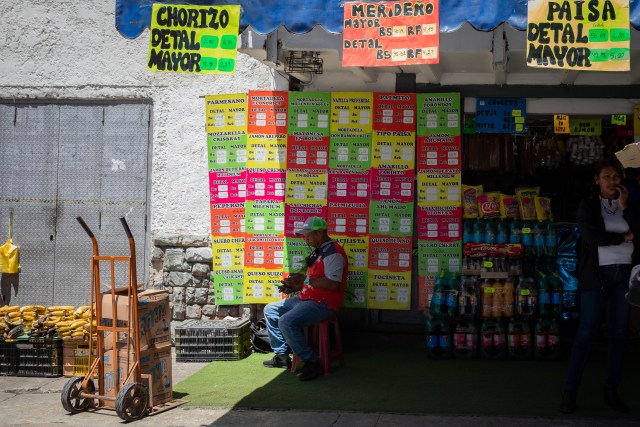
For the economist Rodrigo Cabezas, the possibilities of new investments in the short term in the country will be paralyzed, caused by what he described as the breach of the Barbados agreement by the Venezuelan National Executive. He pointed out that the oil industry, if sanctions are reactivated, will not be able to increase production except marginally.
Lexzys Lugo // Correspondent lapatilla.com
The researcher from the University of Zulia (LUZ) stressed that the perspective of the first two months of the year has changed radically, because politics continues to condition the economy. He predicted that in 2024 inflation will surpass 200%.
For the economist, it is vital that the premise of any economic policy be met: There must be an environment of political and social stability and democratic dialogue in society to achieve economic growth and collective well-being.
“The breach of the Barbados agreement by Nicolás Maduro’s government is a blow to the expectations of new investments in the country. This will tremendously affect the nation’s economy,” Cabeza warned.
As a consequence there will be a paralysis of investment by foreign companies as well as the national public and private sector, there will also be an expansive fiscal policy that will increase government spending for reasons of the electoral scenario, financed with money artificially created by Venezuela’s Central Bank (BCV). This same measures were applied years ago.
“This great expansive fiscal spending carries bad news: This money generated out of nowhere by the BCV is going to bring tremendous inflation for Venezuela, which in the best scenario will be 200%. Workers’ salaries will continue to be grossly insufficient to cover minimum food needs. “Our country urgently needs democratic dialogue and political agreement for the economy to move forward,” he recommended.
The university professor also said that the rupture between Maduro’s and Joe Biden’s governments affects this country, which is why he presumed that the production growth rate this year will be negative, estimating that the main macroeconomic and social imbalances will continue.
Regarding the oil issue, he mentioned that with the opportunity that was generated in 2023 with transnational companies, around 150,000 more barrels per day would have been produced during 2024.
Cabezas highlighted that if, unfortunately, sanctions by the US return in April due to Maduro’s failure to comply with democratic agreements, PDVSA’s additional production in the best scenario would be at most 35,000 barrels per day.

